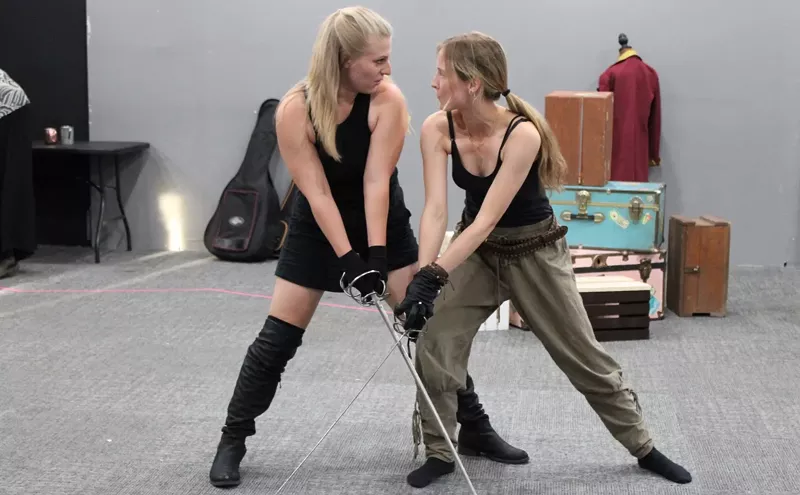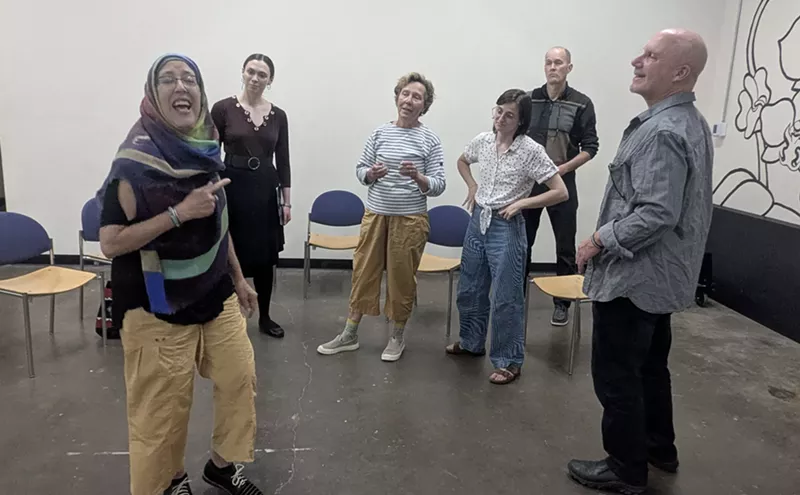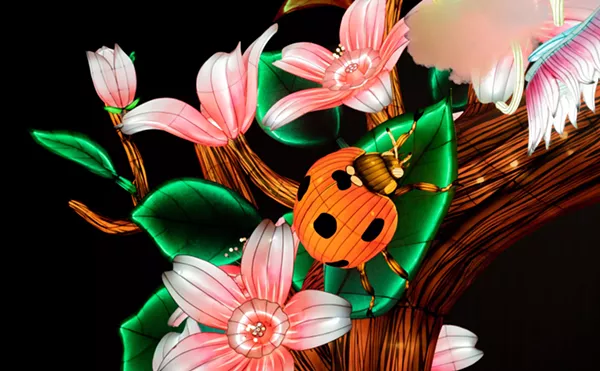I'm not giving anything away if I tell you that Philip Dawkins's Failure: A Love Story is about three sisters — the Fail sisters — who all die in the year 1928, but not before each in turn has fallen in love with the wealthy, affable and apparently aptly named Mortimer Mortimer, or Mort Mort. Their fate is repeatedly forecast in this odd, charming and rather brilliant play as one of the elegantly ragged people who make up the chorus and become birds, ghosts, a bull python and various timepieces as needed explains that their deaths will come, each in turn, by blunt object, disappearance and consumption.
For the Fail family, as for all of us, everything is about time. The parents Fail arrive from Eastern Europe at the beginning of the twentieth century, change their names and set up a watch-and-clock repair business on the corner of Lumber and Love in Chicago, near the greasy waters of the Chicago River. They have three daughters; a fourth child, a boy, dies in childbirth. But then, lo and behold, a baby boy floats by in a wicker basket, snuggled with a pair of monk parakeets and a baby bull python. Accompanied by the ceaseless tick and tock of the clocks, the girls grow up: sensible Gertrude, who runs the shop after their parents' death; beautiful, silly, dancing Nelly; and Jenny June, a spunky athlete who's determined to swim across Lake Michigan and has a crush on Olympic champion Johnny Weissmuller. Mort Mort walks into the store wanting his grandfather's timepiece engraved and falls in love with Nellie, who dies; then Jenny June, who disappears into the murky lake; and finally Gertie. Fail and Fail again.
The point of the play really isn't the plot, but the style — and also the things it has to say about love, time and eternity. Because, despite the casualness with which their deaths are announced, each Fail girl is shown as full of her own very specific vitality and joy. There's Nellie's sweet innocence, Gertie's kindness and patience, Jenny June's obsessive pursuit of the impossible. All of them are as touching as they are funny. And Mort's love, despite the speed with which he shifts its focus, isn't shallow, but heartfelt and profound, as if he saw the three women as different facets of a single beloved. There's a lot of humor, cuteness and unexpectedness to the production, and laughs get raised again and again: laughs of surprise, recognition, empathy, disbelief. But you never forget while watching that there's a deeper current here — that running river, the unceasing tick-tock, the knowledge we all share that at some point, time must have a stop. And in the face of that grim truth, love is the only thing that matters.
The company's approach is inventive. The set is minimal, and objects are used creatively: A man holds a green feathered fan, for instance, repeats the words "Hello? Hello?" and becomes a parakeet. There are occasional songs expressing the mood of the moment, sung a cappella or accompanied by a single, plaintive instrument. I don't know how to describe the costumes, particularly those worn by the Alice in Wonderlandian chorus of creatures and things, but they're evocative and vaguely recognizable, the way Cirque du Soleil costumes are, reminding you of half-remembered mythical, legendary or historical stories. Given the way these costumes move, I wasn't surprised to read in the program that designer Annabel Reader has a background in both dance and circus performance.
Under the direction of Amanda Berg Wilson, the acting is generally presentational: Joan Bruemmer's roles (mother Marietta Fail, chorus, bull snake) are humorously mimed; Ed Cord is solid in multiple roles, including a grandfather clock; Jason Maxwell gives a slightly one-note performance as the girls' adopted brother, poor John N. Fail, who doesn't do well with people. Ryan Wuestewald brings authority, humor and feeling to several parts, and Jeremy Make is an attractively baffled Mortimer — gentle, game for anything, puzzled and sad. And, oh, those lovely Fail girls: Michelle Hurtubise as giggly, luminous Nelly; Meridith C. Grundei as Jenny June, her expressive, swimsuit-clad body as stylish as a Vogue illustration; and Trina Magness, who embues Gertrude with a radiant low-key warmth — performances that underscore the essential humanity of this fascinating play.












